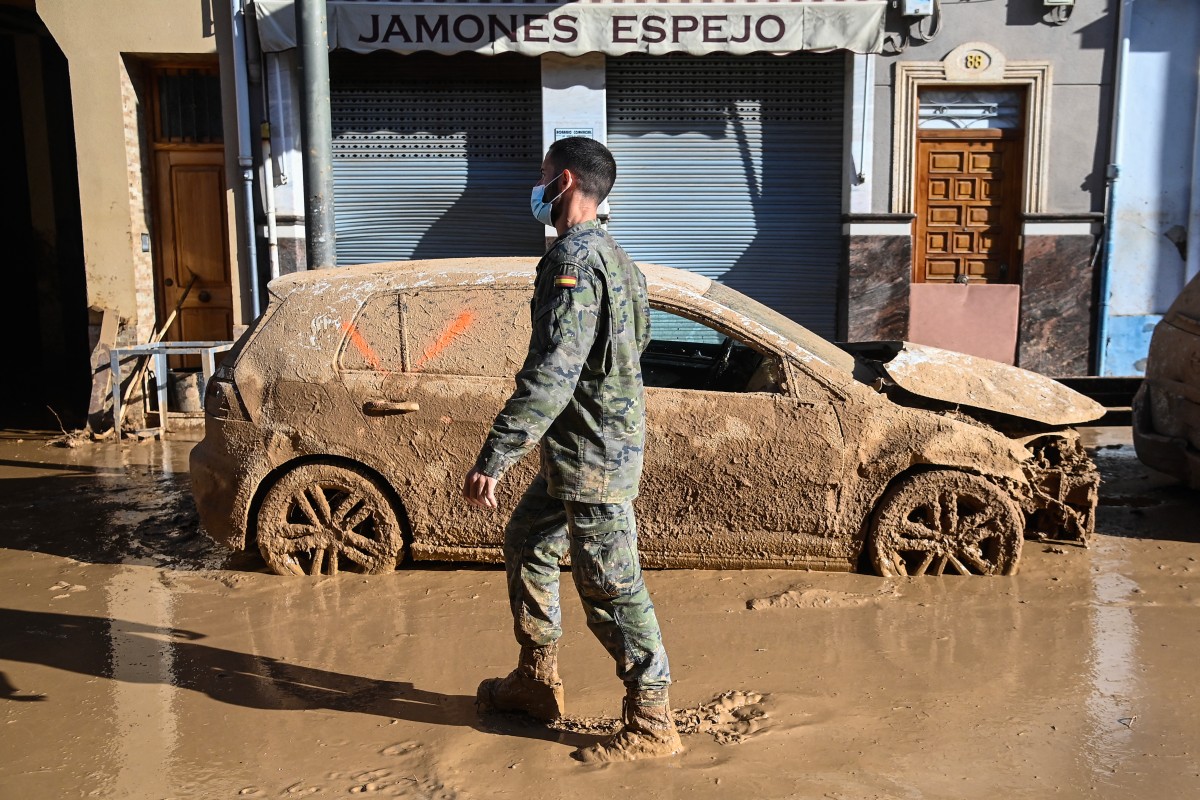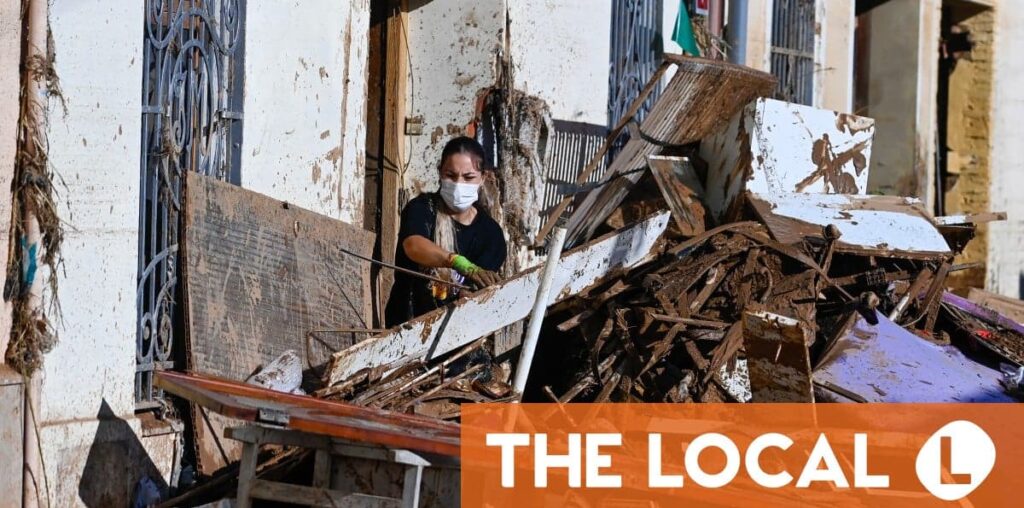“They’ve abandoned us,” said Charo de la Rosa as she joined dozens of people queueing outside the only surviving pharmacy in Alfafar, a devastated suburb of Spain’s third city Valencia.
“I know of dead and missing people… they are neighbours, people you love, you grew up with them… and their cruel death could have been avoided,” the hospitality employee told AFP.
Prime Minister Pedro Sanchez vowed on Wednesday that his government would not “abandon” the victims as the enormity of the catastrophe became clear. At least 211 people have been killed and dozens are still missing, according to the latest toll.
And on Saturday, Sanchez conceded the response has been insufficient and had to “improve” as he announced the deployment of 10,000 extra soldiers and police officers.
A return to normality seemed a pipe dream in Alfafar and the neighbouring town of Sedavi, where the disaster has left deep scars.
Pyramids of mud-covered cars block entire streets and pavements have becoming dumping grounds for mountains of unusable furniture.
As residents resumed the thankless task of clearing the mud, a woman burst into the middle of the street, wailing: she had learned that the floods destroyed her business.
READ ALSO: LATEST: Spain sends thousands more troops to flood epicentre
‘We’re dying’
“Thank you to the people who have come to help us, to all of them, because from the authorities, nothing,” said a furious Estrella Caceres, 66.
Friends and relatives tried desperately to save what they could from the destroyed ground floor of the house where she has lived for 40 years.

A soldier walks past a flood damaged car in Massanassa, in the region of Valencia, eastern Spain, on November 2, 2024, in the aftermath of devastating deadly floods. (Photo by JOSE JORDAN / AFP)
At the back of the home, her husband Manuel cleaned where the water rose to 1.5 metres (5 feet). A former firefighter, he was now a victim of disasters he helped fight for 33 years.
“This will take months because we can’t get the car out, and until the military unit comes to remove everything, we can’t take out anything,” he said.
Around 35 kilometres (22 miles) to the west of Valencia in the ruined town of Chiva, Oscar Hernandez had a scathing assessment of the official response.
Advertisement
“I’m angry… I don’t understand why there isn’t a way to shoot the administration in the head,” he told AFP.
Hernandez’s house lay in tatters and he only received a telephone alert two days after the floods struck.
“We’re dying here,” the 75-year-old added, reserving his sharpest criticism for Valencia region chief Carlos Mazon who “hasn’t moved”.
READ ALSO: MAPS: The places in Spain most at risk of recurring flash floods
Hernandez hopes an investigation will establish responsibility for what he believes was the state’s inadequate preparation.
‘Every day we cry’
Maria Jose, 54, sat listlessly on a plastic chair as young volunteers cleared her house which the water and mud have left unrecognisable.
On Tuesday, she received no warning and sent her daughter to school as usual. It was only in the late evening that the authorities alerted her to the overflowing river.
Advertisement
“Every day we cry even more because we realise the scale of the destruction,” she said.
The national and regional governments have pledged a major reconstruction effort.
But a sceptical Mario Silvestre has seen plenty of promises in his 84 years and will only believe it when he sees it.
“They talk about 300 million euros ($326 million)… promises which, ultimately, are forgotten. I don’t want to speak badly about Spain, but it’s a fact,” he told AFP.
Back in Sedavi, a fire engine drained water from a two-storey garage holding an unknown number of bodies — a scene being repeated across the Valencia region.
Hope was ebbing. Firefighter Javier Lopez, his hands spattered with mud, told AFP all the basements were flooded and “quite a few” bodies would be found once the water was pumped out.

